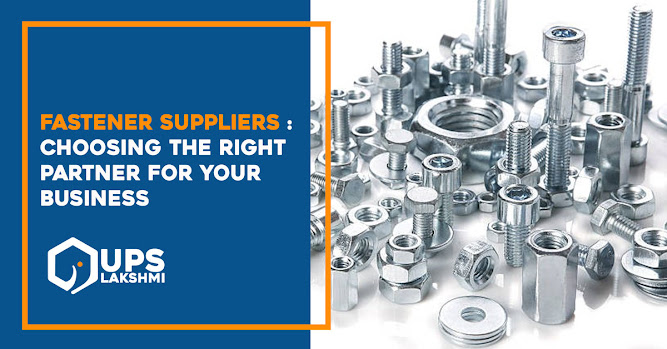What Are Self-Tapping Screws?
Self-tapping screws, also known as tapping screws, are designed to cut their own threads in which they are screwed.
Self-tapping screws have a wide range of
applications. These tap tite screws are suitable for a variety of materials,
including plastic, metal, and even wood. When inserted into a hole in the
material, they can create their own threads, eliminating the need for
pre-drilling. Self-tapping screws can be used in both DIY and industrial
applications.
There are two types of self-tapping screws-
Thread
forming:
These screws do not have a pointed tip, so
you will need to drill a pilot hole before using them. Thread-forming screws
are commonly used to join plastic materials. They typically grip material more
tightly due to their design
Thread-Tapping:
Although these screws do not require a
pilot hole, one can be drilled to facilitate fastening. Thread-tapping screws
remove material while also creating a path for the screw.
There are many different types of
self-tapping screws, and the one you choose will depend on the project at hand.
Let’s take a look at some of the most popular types.
Countersunk or
flat head self-drilling screws: These allow for a flush finish because the
screw head sits below the surface of the surrounding material. This results in
a flat and smooth finish.
The screw head is less likely to be
compromised and distorted when driving into the material due to the shape of
the driver used.
Hex head/Socket self-tapping screws: Contractors typically use hexagonal head screws in heavy-duty
applications where a countersunk head is not required.
Button head, dome head, and pan
self-tapping screws: Self-tapping screws with
button heads, dome heads, and pan heads are commonly used in carpentry. The
dome shape reduces the possibility of the screw head countersinking into the
material.
Universal Precision Screw is one of the
leading and most trusted manufacturers of industrial and commercial fasteners.
UPS Lakshmi offers an extensive range of precision screws. UPS Lakshmi fasteners
are widely used in different applications in the construction, manufacturing,
medical, and automobile industries, etc. Their durability and tensile strength
make them highly demanded among customers.




Comments
Post a Comment